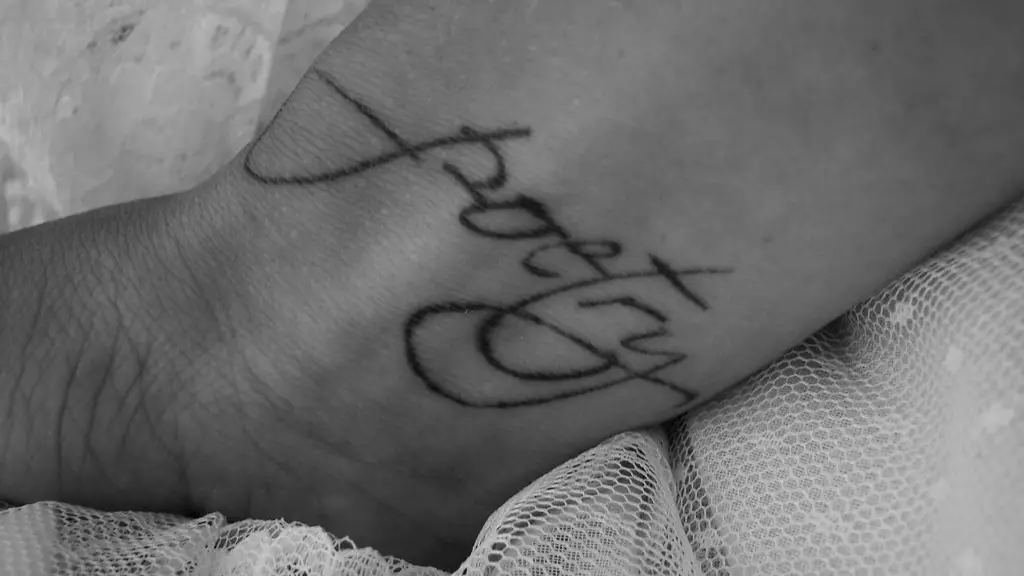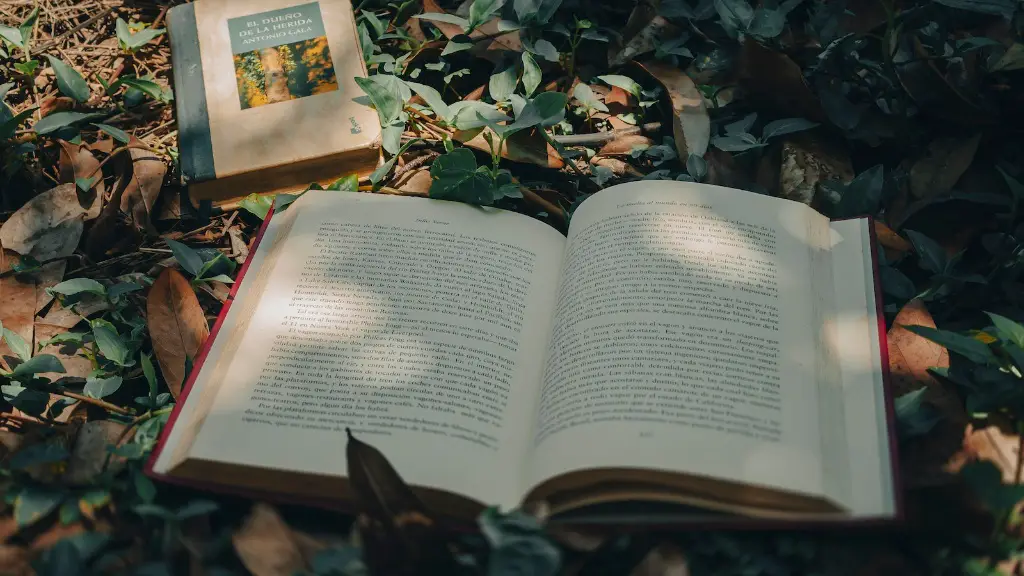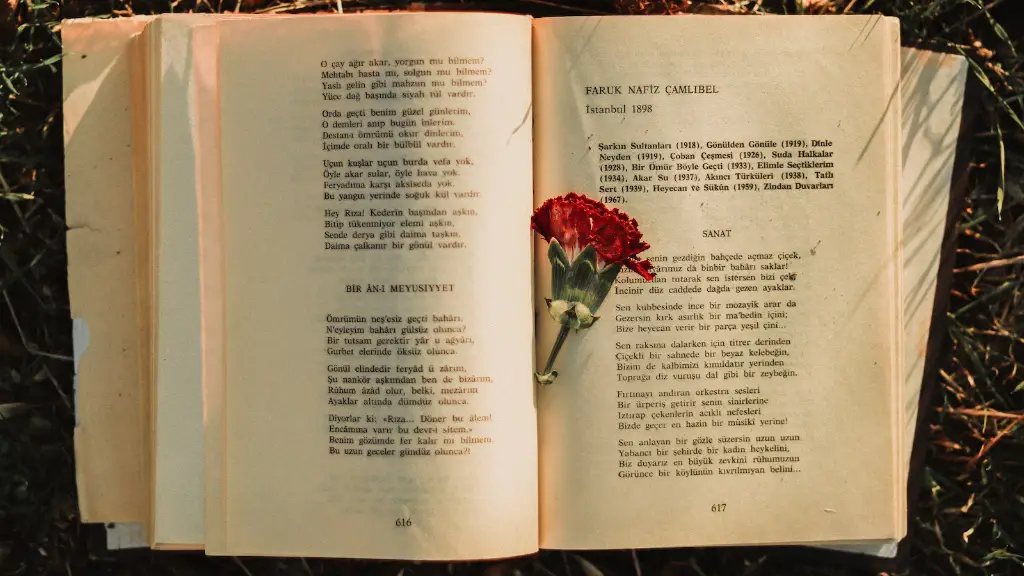Understand the Basics
Poetry is a form of writing that expresses a feeling, emotion, or thought in a creative way. It’s the combination of words and imagery that adds depth to language and creates beautiful, meaningful stories. To someone who’s new to poetry, the task of writing a poem can seem daunting. But the truth is, all it takes is finding the right inspiration and a bit of creativity. Here we’ll be exploring the basics of how to get started with poetry.
Find Your Theme
The starting point for any poem is to find a theme or topic. It could be something from your personal life that you want to express or something you observe in the world around you. Once you have a theme in mind it’s time to brainstorm ideas. Write down all the words, phrases, and images that come to mind when you think of that theme and use that to create your foundation.
Choose a Form
The next step is to choose a form for your poem. Each form has different rules and conventions that help to shape the poem and add form to your creative ideas. Common forms include haiku, sonnets, and blank verse. Consider experimenting with different forms to find what works best with your poem.
Write Your Poem
Now it’s time to get to actually writing your poem. Take the themes and ideas from your brainstorming session, and let your ideas guide you. Consider how you want to structure your lines and your words, as well as how to build the rhythm and flow of your poem. Keep in mind that writing a poem doesn’t have to be a linear process. Let your ideas flow in whatever direction they take you and feel free to go back and revise until you’re happy with the result.
Read Aloud
Once you’ve finished writing your poem, it’s time to take a step back and read it aloud. This can help give you a better idea of how the poem reads and allow you to adjust any parts that don’t sound right.
Seek C rit icis m
It’s normal to be a bit nervous to share your poem with others. But it can also be really refreshing and important to view your poem from the eyes of a critic. Seek out feedback from friends or join a writing group so you can get a neutral and honest appraisal of your work.
When you’ve taken the time to make edits and revisions based on feedback, you’re finally ready to publish and share your poem with the world! Whether it’s by conventional methods, like printing out and handing out copies of your poem to friends, or by posting it on social media, you can now show off the fruits of your hard work.
Explore the Genre
Writing poetry is an ever-evolving skill, and the more you know, the better your writing will become. Take the time to explore contemporary poems and read the works of different authors, as well as those of other historical periods. Talk about your work with others and share your ideas. Through exploring the genre, you’ll become a better writer and a better poet.
Practice
Writing poetry is both a skill and a craft, and like anything else, practice makes perfect. Try to make writing a daily habit, even if it’s just a few lines at a time. Keep a notebook with you so you can jot down ideas when they come to you, and don’t be afraid to just write whatever comes to mind. It doesn’t have to be perfect, and it doesn’t even have to make sense—just have fun and let your creativity flow.
Understand Different Poetic Devices
Understanding the different poetic devices is essential to becoming a successful writer. Knowing the terms, like alliteration, simile, metaphor, meter, and hyperbole, is essential as each one enhances the text in its own way. One of the advantages of poetry is that you can use poetic devices to create multi-layered meanings and explore emotions in much greater dept h.
Develop an Outline
When writing poetry, it can be easy to lose track of ideas. One way to help keep yourself on track is to create an outline of sorts. This can be something as simple as a brainstorming sheet, listing key words and ideas that you will use in the poem. As ideas come to you, you can jot them down and move them around until you have the right structure and feel for your poem.
Experiment
Creativity is key when it comes to writing poetry, and one of the best ways to be creative is to experiment. Play around with different forms, lengths, and structures and see what works best for you. Don’t be afraid to take risks and try something new. After all, that’s how great poetry is created.
Explore Emotion
At its core, poetry is about emotion. When writing, try to use language and imagery to capture and express emotion. This can be any emotion, from joy to sorrow or anger to elation. It’s up to you how to capture the emotion in your poem, but just remember to stay true to the emotion and don’t be afraid to let your words illustrate how you feel.
Consider Structure
Knowing the structure of a poem can also be helpful when writing. Most poems have a stanza structure, which is a group of four or more lines that form a unit, usually with a rhyming pattern. Paying attention to the structure of the poem can help to guide you and make sure your poem has the right feel and flow.
Express Yourself
Writing poetry is an opportunity to express yourself and your thoughts in a creative and unique way. Poetry can be a way to reflect on and explore your own experiences and emotions. Don’t be afraid of sharing these with the world and letting them take in your perspective. It’s a wonderful thing to be able to communicate with others and share your ideas.
Keep Writing
One of the best things about poetry is that it’s always evolving, and there’s no “right” way to write a poem. While there are some basic rules and conventions, you’re ultimately the one who decides how your poem will turn out. So don’t be afraid to keep experimenting and keep writing—when it comes to poetry, practice does make perfect.




